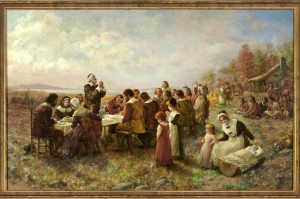Can I just post a 'Wanted' sign for kids' friends?
Excerpt from It's Not Too Late by Dan Dupee
Wanted: Friend for twelve-year-old child. Must have a clean criminal record and, if at all possible, have discovered personal hygiene. “Please” and “Thank you” a must, but Eddie Haskell types (of “Leave It to Beaver” fame) need not apply. Desirable but not necessary that he or she be a Christian. Gaming or social media threshold for acceptable candidates less than two hours a day. We will provide snacks, oversight, and a safe environment. Applicants may be asked for a urine sample. Please respond to [email protected].
If only we could pick our kids’ friends, wouldn’t life be easier? Humans, after all, become like those with whom they spend time. No wonder the writer of Proverbs so emphasizes the importance of choosing good companions: “Whoever walks with the wise becomes wise, but the companion of fools will suffer harm” (Prov. 13:20 ESV). The importance of the choices we and our kids make about friends and influential acquaintances cannot be overstated. Our very characters are at stake.

The best antidote for the negative peer influence many parents fear is itself peer influence. Friends who shape our kids can also be friends who protect them, even as our children do the same for their friends. The writer of Ecclesiastes says, “Though one may be overpowered, two can defend themselves. A cord of three strands is not quickly broken” (4:12).
Notice that the writer of Ecclesiastes does not encourage rugged individualism here but rather points out how much stronger a group is than a single person. There may be a time when our child is on his or her own and must stand up when no one else will, but this is the exception. Our primary message to our kids should not be, “It is you against the world.” No, the primary message should be, “Find like-minded friends with whom you can not only stand for what is right but influence the beliefs, attitudes, and behaviors of others.”
College students who have learned how to choose positive peer influences before they arrive on campus have a distinct advantage. They are more likely to look for Christian fellowship, build good relationships, and navigate the difficulties of higher education successfully. Whether it is the temptation to party excessively or challenges to Christian faith from a professor, Christian students who are connected with other Christian students are much more likely — exponentially more likely — to not only survive but grow as a follower of Christ.
Every so often I get put on the spot with a question like, “What’s the most important factor in my son or daughter making it through college as a Christian?” My visceral response from years of this work is the need to be connected to other Christians. Before I can stop myself, it comes out: “The isolated become roadkill.”
The opposite is also true. Alyssa is now a missionary in a predominately Muslim country in the Mediterranean. As an undergraduate, she led the largest and most recognized student organization on her thirty-five-thousand-student campus. From her first year on, Alyssa was part of a thriving Christian fellowship, where she built friendships with men and women who continue to support and encourage her from thousands of miles away. She says, “I was a leader as an undergraduate and have taken the risk to work overseas as a direct result of the people that God has put in my life. It’s true of my campus ministers, but just as true for my peers — I would never have become who I am now apart from them.”
As your children express interest in kids you (or they) don’t know, invite these children to your house. Get to know them and, if possible, get to know their parents. As you have probably learned from experience, most of the kids you meet are a lot like your own sons or daughters: they have lots of energy, vivid imaginations, and love to play. They are also open to the influence of other caring adults, which might just describe you!
As your kids meet peers outside the circle of those you know, introduce them to Scripture’s wisdom on the matter of choosing friends. The book of Proverbs paints vivid pictures of bad peer influences and has encouraging words relative to wise friends. It’s hard to read Proverbs without concluding that the age of Solomon’s intended audience for the book is early adolescence. This may be why the appeals to young men in particular carry urgency.
Here are a few ideas parents have found helpful in surrounding their kids with other children likely to be good influences:
- Make your house the place kids want to come and do everything you can to make them feel welcome. Hint: a few games to play and good snacks.
- Help coach a team, become part of a parent-teacher organization, or become part of American Heritage Girls, Boy or Girl Scouts, Indian Guides, and so on.
- Encourage involvement in a parachurch organization such as Young Life or Youth for Christ.
- Expose your child to a good Christian summer camp.
Dan Dupee is the former Chairman of the Board for the Coalition for Christian Outreach, a Pittsburgh-based campus ministry working annually with over 32,000 students on over 115 campuses. He brings together biblical truth, sociological research, college transition findings, and focus group work with parents of adolescents to develop principles that are fresh, clarifying additions to a growing body of research on teen faith development. Dan and his wife, Carol, are the parents of four children. They live in the northern suburbs of Pittsburgh, Pennsylvania. More information about his book “It’s Not Too Late” can be found online here.



























